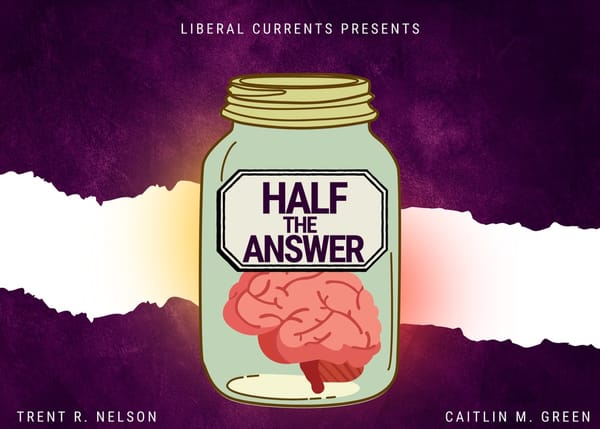False Equivalence Will Not Help the Anti-War Movement

“America is back,” anti-war and erstwhile progressive journalist Glenn Greenwald sneered on Twitter after it was announced that Democratic president Joe Biden had launched airstrikes against facilities in Syria and Iraq. Andrew Murray at Jacobin cosigned the sentiment in an article labeling Biden and British Labour leader Keir Starmer as “warmonger internationalists.”
The frustration is understandable. Democrats and Republican administrations both rush to pour billions into the Pentagon budget; Democratic and Republican politicians both leap at any chance to support Israel’s violent occupation of Palestine. To those pushing for change, there doesn’t seem to be much daylight between the two parties. It’s not one or the other, but both that are the warmongering enemy. A pox on them both!
There are two problems with this approach. The first is that it’s not true; Democrats and Republicans are not identical on issues of war. And the second is that it hasn’t worked. Railing against the two-party duopoly has done little to restrain imperialism or military intervention, and doesn’t seem likely to be effective in the future either. Peace is too important to double down on tactics that aren’t working.
Again, there’s no doubt that Democrats and Republicans share an ugly imperialist commitment to projecting US international military power. But there’s also little doubt that for the past decades, the Democrats have been the party relatively committed to restraint.
Republican George W. Bush started the War in Afghanistan and the Iraq War, the two devastating conflicts that have defined American military occupation and intervention in the 21st century so far. Bush and his administration lied about Iraqi capacity to deploy chemical, biological and nuclear weapons in order to gin up public support for an invasion. Casualty estimates of the brutal and unnecessary and illegal war range from 100,000 to 650,000.
The Iraq War initially garnered bipartisan support (including the support of Glenn Greenwald). But eventually as the occupation soured and the war ground on, Democratic opposition solidified. Barack Obama, who opposed the Iraq war from the beginning, defeated the hawkish Republican John McCain for the presidency in 2008, and set about, slowly and messily, winding down American involvement.
Obama may have largely ended the Iraq War, his critics claim, but he embraced the use of drone strikes. Anti-war commenters point out that Obama launched more than 550 drone strikes in Afghanistan and Pakistan, compared to the Bush Administration’s 57. The strikes killed somewhere between 380 and 800 civilians.
The drone war death toll is nowhere near that of the Iraq War. Nonetheless, raining death on civilians from the sky is horrific—which is all the more reason to condemn Trump’s callous expansion of the program. Trump gutted virtually all accountability and transparency measures designed to restrain drones. As a result it’s difficult to know how many people he killed. Without those numbers, and with so much other chaos during the Trump Administration, press coverage of the drone war trailed off. As a result there was little discussion when Biden reinstated major restrictions on drone strikes.
Part of the reason that the drone limits have not been in the news is that progressives have ignored them. Jacobin, in attacking Biden as a warmonger, mentions drones only to attack Obama—Trump and Biden’s drone policies aren’t discussed. The insistence that both parties are the same makes it difficult to point to or celebrate victories—and ramping down drone strikes does seem like an important reform. Politicians have little incentive to listen to anti-war proponents when they aren’t given credit for doing so.
The insistence on bipartisan equivalence is even more counterproductive when it leads to a reflexive counter-establishment that responds more to branding than to actual policy positions. The problem here was starkly illustrated in 2016 when confused anti-war advocates claimed that Donald Trump was a hope for peace.
Trump was an outsider who insulted Republican and Democratic political figures and lied that he’d opposed the Iraq war from the beginning. In response, left outlets like the Guardian, The Intercept, and The Nation credulously swallowed Trump’s claim to be anti-war. In the event, Trump vetoed a bipartisan effort to end US involvement in Yemen and pushed through enormous military budgets. Which prompts the question, what use is an anti-war left movement which credulously swallows transparent fascist lies?
Confused apologies for Trump didn’t bring peace. So what would?
There’s no one good answer. War tends to breed war, and the United States has been enthusiastically pursuing war for a long time. Our military budget is larger than the next ten countries combined. US troops are stationed everywhere from Germany to South Korea, and we’re involved in ongoing conflicts in Afghanistan, Iraq, Libya, and Syria, as well as in the open-ended War on Terror. Foreign policy isn’t a priority for most voters unless the US manages to lose a war. The reason that anti-war advocates dismiss both Republicans and Democrats, and are sometimes quick to jump to anyone who promises to change things, no matter how duplicitously, is that the prospect for change seems small.
But restraining militarism abroad is too important to abandon to despair. Marginal improvements in policy are measured in actual lives saved. Anti-war activists sometimes rail against lesser-of-two-evils logic, but dismissing fewer dead seems callous. Obama’s foreign policy was bad but ramping down the Iraq War was a vast improvement over his predecessor. Similarly, Biden restricting the drone war will save many lives—and his withdrawal from Yemen is positive as well. If our goal is to reduce carnage, that should matter.
Acknowledging that Democrats are generally better can also help focus activism. Anti-war advocates sometimes dream of a great realignment, in which isolationists on the right and anti-imperialists on the left come together to undermine the current consensus for war. In practice, though, this approach has been disappointing. The 2020 documentary The Swamp for example showed conservative Florida representative Matt Gaetz and left California representative Ro Khanna working together to add an amendment to a defense appropriations bill that would have made it harder for Trump to launch strikes on Iran. That sounds hopeful, but when the amendment was stripped out, Gaetz voted for the bill anyway. Khanna did not. Because, again, there’s significantly more space in the Democratic party to push back against war than there is in the GOP.
The anti-war wing of the Democratic party is not robust. But it exists, and legislators like Bernie Sanders, who is now in Senate leadership, have a lot more influence when Democrats are in power than when Republicans are.
None of this is to say that simply voting for Democrats is an adequate strategy for ending our current foreign policy default of intervention and war. Obviously it is not; Biden has already bombed multiple other countries; there’s no prospect of a major cut in military budgets in his Administration. But insisting the parties are equivalent is false and basing political and tactical decisions on falsehoods is not a good way to change anything. If we’re ever going to roll back America’s endless wars, it will have to be by accurately assessing the current political situation. Democrats and Republicans both support intervention and imperialism. To the extent that one party is open to change, though, it’s not the Republicans.
Featured Image is Anti-War Demonstration at The White House 1/4/20, by Susan Melkisethian




